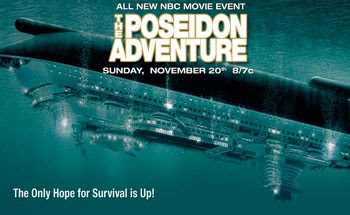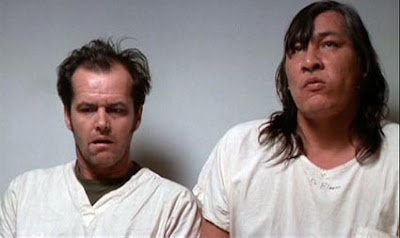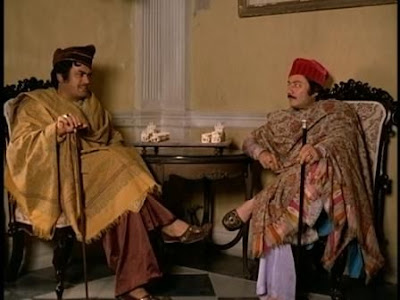Gunners do everything with guns; a supreme kind of macho feeling. When they have hostile intent they fire their guns to slam the daylights out of the enemy. However, when they have to signify friendly intent, they still say it with their guns; they salute you with gun-shots. It is as if, for a Gunner, it is guns or nothing. Nowadays, people ashore too fire gun-salutes, having borrowed the tradition from the naval gunners. In the olden days, when a warship entered a foreign port, it would harmlessly fire its cannons, until it finished with all ammunition, to show it didn’t have a hostile intent. As the tradition progressed over the years, a 21 Gun salute was fired for head of state (King, Queen, President or Prime Minister). Indeed, it is still fired as a mark of respect for the head of state when a ship enters a particular harbour for the first time. Down the line, the other dignitaries of the state are entitled to lesser number of gun-salutes.
What does One-Gun Salute mean? It is a rogue’s salute fired at Colours (usually 8 A.M.) on the day a naval court-martial has been ordered to assemble.
I was posted as Signal Communication Officer of the second one of the indigenous modified Leander Class design ships of the indigenous Godavari class: Indian Naval Ship Ganga. She was commissioned on 30th Dec 1985 by the then Prime Minister Rajiv Gandhi and we had the distinction of taking he and his wife Sonia for their famous (made infamous by a persistent questioner – who wanted to be compared to a dog, since he had ascribed to himself the role of a watch-dog: Ram Jethmalani) visit to Andaman & Nicobar islands.
We also went on a flag-showing visit to Jeddah (Saudi Arabia) and Masawa (Eritrea, adjoining Ethiopia). This was our first foreign visit on Ganga and we were excited. However, our Captain was a little edgy since we had the Fleet Commander, Rear Admiral Shekhawat (he later became the Chief of the Naval Staff) and his entire Fleet Staff embarked on board. With or without the Fleet Commander, the Fleet Staff rejoices in asking questions that make the ship’s staff cringe. As if that is not enough, they rub it into you hard by making some pippins of signals at sea intended to prove to anyone with a modicum of intelligence that the recipient of their signal (s) was standing last in the queue when God was dishing out brains. Some of the signals made at sea by some of the Fleet Commanders are (just to give you some sample signals):
- You are slow like Chinese naval men.
- The line (of ships) is higgledy – piggledy.
- Where are you going? (To a ship that has misunderstood her station).
- Your stupidity has spoiled the whole show.
Anyway, you have probably got the idea. Already, whilst heading towards Jeddah, the FOO (Fleet Operations Officer), Captain ‘Jerry’ Patel had enquired with a chuckle, “How come the Fleet Commander’s chair on the Bridge is covered with a white Turkish cloth whereas our Captain’s chair is covered with red Turkish cloth?” My riposte that it was to indicate whose ass was on fire boosted the morale of my Captain, only to return to being lugubrious later.
The eve before entering the Jeddah port he went to the Helicopter Deck to address the ship’s company to refrain from custom violations etc (the mandatory talk, which serves as much purpose as speed limit of 80 kmph on Mumbai-Pune Expressway).
We entered harbour ceremoniously dressed in white tunics and trousers and white peak-caps. A guard and band was paraded on the helo deck. At the appointed time and position we fired the Gun Salute to the King of Saudi Arabia, returned gun for gun (though lesser number of guns) for the Fleet Commander.
I need to explain this Gun Salute for my civilian readers:
Unlike the olden days custom of harmlessly firing the ship’s main guns, these days, there are especially made Saluting Guns that fire shells with very small charge so as to produce bang and fire but do no visible harm. Nevertheless, a charge is a charge and those firing it have to take adequate precautions. Have a look at the picture below:

Now how do the Gunners keep timing of 10 to 15 seconds between two gun-shots so that the sound and fire would be at equal intervals and not haphazard? Here too, the Gunners have a unique system; between two gun shots, they load the shell saying out aloud: “If-I-were-not-a-Gunner-I-won’t-be-here…fire” and so on. In the last two articles on gunners I must have already convinced you that there is nothing more unique in the Navy as Gunners. Now you know that the Navy has two types of personnel: Gunners and the Others.
Anyway, the firing of the Gun Salutes was accomplished without a hitch. We paraded an Entering Harbour Ceremonial Guard and Band and took up our appointed berth. On the Bridge, whilst entering harbour, one look at my Captain’s face convinced me that he was as happy as a school-boy appearing for Algebra exam.
In the forenoon, we had a number of visitors on board. Each one of them was ceremoniously received on the Helo Deck by the Fleet Commander and my Captain. My Captain’s mood was becoming more and more sombre. This was rare since he was generally very genial who loved to guffaw loud on slightest pretext.
One reason, amongst others, that I could lay my finger on, was a small change of plan that the Fleet Commander and his staff had brought about for the evening reception on board. Since we were the first ship alongside, cocktails were going to be on our ship for all and dinner for a smaller number of important dignitaries was to be held on Ranjit’s helo deck. Why would our Captain sulk because of this? Simple; before leaving Mumbai, the Fleet Staff had prepared us for the dinner and we had gone about putting together the best of arrangements for it, which included fancy food-heaters that were not so common then as they are now. So, here was a chance to show-case our best logistic skills but, at the last minute, due to this change, we had to handover our best to Ranjit.
I was the DLC that day: the Duty Lieutenant Commander. I was also the Mess Secretary of the Wardroom. In the evening, in his dejected mood, the Captain had started pacing on the helo-deck to survey the evening’s arrangements for cocktails. I had never seen him in that mood. It appeared to me that he was on a spree of finding faults and anybody who was in his line-of-fire was getting it nice and proper.
I shared a special relationship with him; we would often crack the juiciest of the jokes when closed up on the Bridge. For example, when I had confided in him that I had four of my COs during that cruise (Captain Dabir (God rest his soul) as my erstwhile CO of Talwar, Rear Admiral Shekhawat – the Fleet Commander as my erstwhile CO of Himgiri; Captain ‘Jerry’ Patel, my next CO (after Shekhawat) of Himgiri and finally he, Captain KK Kohli of Ganga; he laughed out aloud and remarked, “You are a much ——ed man.” However, that evening, jokes and laughter were farthest from his mind. He ticked me off several times to indicate his dissatisfaction with the arrangements. “Come on” he quipped, “The party is about to start and nothing has been done so far.” I was about to remind him that there were still three hours to go for the party but one look at his face told me to think better of it.
Suddenly in the midst of ceremonial awnings, bar, chairs and sofas being set-up, he noticed the Saluting Guns (two on either side) that were still bolted to the deck. “Why are these here?” he screamed with the indignation of a diner suddenly spotting a fly in his soup. I innocently looked at the guns and confirmed the veracity of my Captain’s finding. My unsaid response was, “Trust the Gunners not to have cleared up after the shoot; don’t they do it with their mouths too?”
Anyway, to announce for the Gunnery team to clear off the Saluting Guns, more than eight hours after they had done their job, was for me the need of the hour. There is one thing that has to be said about the Gunners; whilst most times they may lie idle, at action and on broadcasts, they suddenly appear from nowhere to address themselves to the task at hand. They quickly got around to unbolting the guns and carrying these to Gunner’s Store.
Meanwhile the Captain had resumed his firing me with some choice words; the mildest of these being that I had no future in the navy if I couldn’t arrange something as simple as Cocktails without the Captain’s help. He was warming up to his prediction having come true, when he had first set eyes on me two years back, that of all the people I would fail him at a crucial juncture. He had then embarked on such nitty-gritties as that a good DLC would personally check the dress of the ceremonial sentry since he would be the first person seen by the guests. However, he stressed that only good DLCs would do that and I was certainly not in that category.
“Have you done this?….Have you ensured that?…blah…blah…blah…” there was no end to it and I didn’t know how to stop him. Suddenly, we heard a rogue’s gun being fired close to us….a loud crackling sound and flame….for heaven’s sake at 5:30 in the evening. We froze. My first reaction was that the CO had exploded in rage.
It came out that a Gunner was carrying one of the saluting guns, holding the barrel between his legs, since it was heavy; when, it suddenly fired. Apparently, in the morning firing of 21 guns-salute, one of the shells was still loaded after 21 had been successfully fired and – hold your breath – the Gunnery Team had forgotten about it. Forgotten shells and rounds have this uncanny habit of making their presence felt at the strangest of times. In this case, it had displayed the stuff it was made off exactly at the time when my Captain was trying to compete with it in sound and fury. The worst was that the shell had fired quite close to the sailor’s real gun and shells and he had a miraculous escape though his hand was injured and bleeding.
What a sobering effect this had on my Captain! The sailor soon became alright with first-aid given to him in the ship’s Sick Bay. My Captain too became totally normal immediately, especially with the quick realisation that it could have been much worse if the sailor was badly injured or if it were to take place at the time when the dignitaries were on board during the forenoon. He was, after that, his usual life-of-the-party, jovial and full of jokes and fun.
I heaved a sigh of relief remembering how he would handle the trickiest of situations at sea with calm and without losing his balance.
That night when I went to sleep, I learnt the full meaning of the (gunnery?) expression: to kill two birds with one stone. I gave a silent 21 gun salute to the Gunners in my dreams for having saved my life that evening.
























































